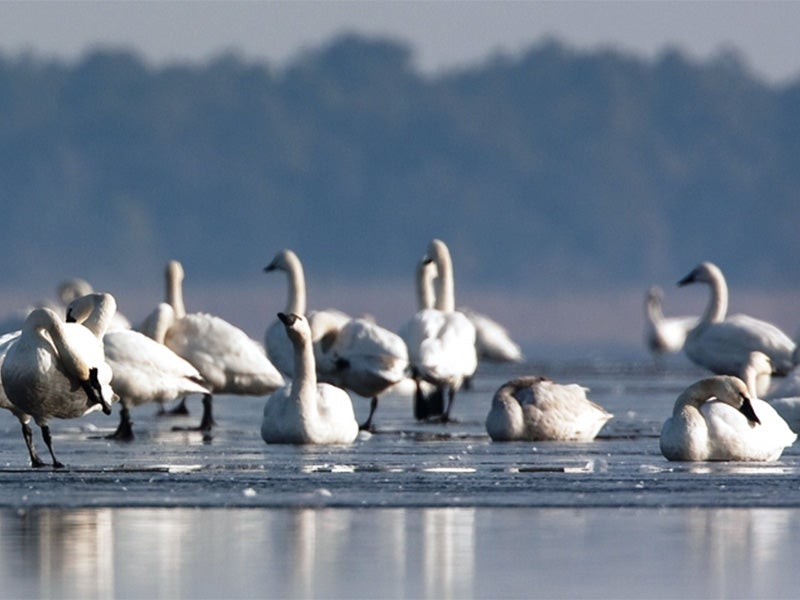Local Groups Demand Industrial Egg Factory Follow the Clean Water Act
Ammonia from Rose Acre Farms endangers nearby wildlife refuge, waterways and entire Tar-Pamlico River system
Contact
Several North Carolina conservation groups filed legal papers late yesterday aimed at cleaning up ammonia pollution from a massive industrial chicken operation adjacent to the Pocosin Lakes National Wildlife Refuge.
The groups filed a motion in federal court in North Carolina seeking approval to participate as parties in a case initiated by Rose Acre Farms (Rose Acre), owner of a 4 million hen egg-laying operation. The federal case against the North Carolina Department of Environment and Natural Resources (DENR) is the second lawsuit filed by Rose Acre in its multi-year battle to avoid complying with the Clean Water Act.
Rose Acre’s action comes a year after a NC Superior Court ruled that DENR has authority to require Rose Acre to operate under a Clean Water Act permit. While Rose Acre did not appeal the Superior Court ruling, it now appears to be asking the federal court for a “second opinion” on whether the Superior Court was correct that the Clean Water Act applies to Rose Acre’s facility.
“Now, more than a year after the Superior Court’s conclusion, Rose Acre seeks to take an already-decided legal claim to court,” said Hannah Chang, an attorney with Earthjustice, the public interest law firm representing the groups. “Its claims that pollutants from the hen confinement houses, which ultimately wash into navigable waters, are not covered by the Clean Water Act have already been rejected by the state court. This is just the latest attempt in Rose Acre’s long-running efforts to avoid cleaning up its act.”
In a separate but associated legal filing, on May 12, the same groups—Pamlico-Tar River Foundation, Friends of Pocosin Lakes National Wildlife Refuge, and Waterkeeper Alliance—opposed Rose Acre’s motion to stay proceedings in the NC Office of Administrative Hearings (OAH). The Superior Court ruling in January 2013 remanded the case to an administrative law judge at OAH for a hearing on whether the Rose Acre facility is discharging pollutants. Rose Acre has asked for a delay in the OAH proceeding while it pursues its foot-dragging strategy in federal court. The groups have asked OAH to see through this attempt to circumvent the Superior Court’s ruling, and move quickly toward a final decision that Rose Acre is subject to the Clean Water Act.
Hanging in the balance in Rose Acre Farm’s legal wrangling is the adjacent Pocosin Lakes National Wildlife Refuge, a115,000-acre wetlands area previously described by one court as “home to some of the most unspoiled habitat along the East Coast,” and the entire Tar-Pamlico River system, which is the lifeblood of the people and communities who live within its watershed and the base for the economic health of the region.
“We are dismayed that the state is not aggressively seeking to require Rose Acre to operate under a strong permit,” said Heather Jacobs Deck, Riverkeeper, Pamlico-Tar River Foundation. “Accordingly, we are seeking to participate in the federal case to ensure the strongest protection for the watershed, which so many of us treasure.”
Read the memorandum filing for intervention in federal court.
Read the filing with the State of North Carolina opposing Rose Acre’s motion for stay.

Additional Resources
About Earthjustice
Earthjustice is the premier nonprofit environmental law organization. We wield the power of law and the strength of partnership to protect people's health, to preserve magnificent places and wildlife, to advance clean energy, and to combat climate change. We are here because the earth needs a good lawyer.